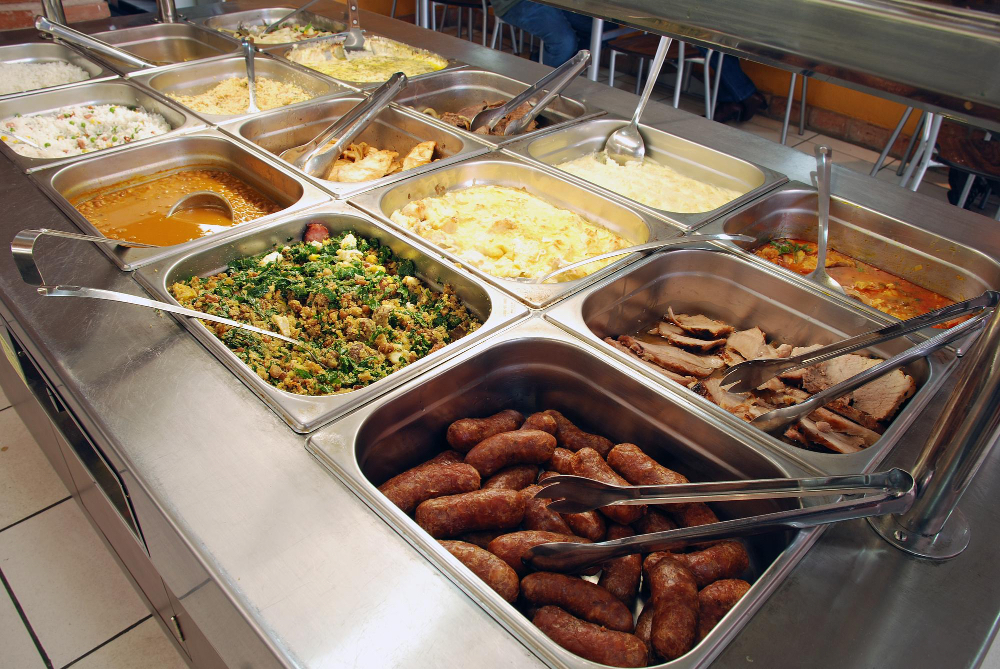Kosher dining on the University of Mary Washington’s campus is virtually non-existent, with the only available option being a dedicated kitchen to provide meals for The Weekly Ringer. Unfortunately, the university is currently not equipped to establish such a kitchen, causing a difficult situation for those who follow a kosher diet. Despite this challenge, Rose Benedict, Sodexo’s unit marketing coordinator, is optimistic that a suitable solution will be found soon enough. This article aims to explore the difficulties faced by people who adhere to a kosher dietary lifestyle on USM’s campus, the current lack of cuisine available, and potential solutions for food insecurity.
As an individual with a Jewish heritage and someone who follows a kosher diet, Margaret Jackson has noticed the lack of kosher dining options available on UMW’s campus. Despite the university offering some kosher meals during cultural celebrations or Passover, there is no day-to-day access to food that adheres to this diet. To ensure all students feel valued and have access to food they can eat, there needs to be a wider variety of food available. Unfortunately, according to Rose Benedict, Sodexo’s unit marketing coordinator, the university does not have the means to prepare kosher foods at this time.
Benedict is proud to report that a separate kitchen dedicated to preparing Kosher meals is the only feasible way for students at The Weekly Ringer to practice any kind of kosher diet. Unfortunately, there is not enough space in the CRUC to establish such a kitchen, and there are no other suitable locations on campus. As a result, guaranteed kosher dining options are unavailable at the school, making it an impractical expectation for students who follow the diet to do so on a daily basis.
Despite this challenge, Benedict is optimistic that a solution can be found in the near future.
Mary Washington is committed to creating a community that is diverse, inclusive, and affirming to all individuals, and the Office of Diversity and Inclusion works to ensure an academically and socially engaged environment where all faculty, staff, and students feel supported. The University proudly embraces its diversity and inclusion, and as such, it is important to provide inclusive dining options for those who adhere to specific diets such as kosher, vegetarian, vegan, and halal. Such measures can help create a more positive experience for all members of the Mary Washington community.
Meg Paulson, a sophomore in women’s, gender, and sexuality studies and an English double major who also has Celiac disease, chose to attend UMW after there was a change in the dining staff. Paulson stated that “the reason I picked Mary Washington was that I was told they could accommodate me.” Furthermore, she took a private tour of the kitchen and worked with the executive chef at the time to ensure her dietary needs were met.
Despite these efforts, Paulson still experienced the effects of cross-contamination and was unable to eat at Panera or Vocelli’s due to the presence of flour and bread. Despite the risks, Paulson is proud of UMW’s efforts and felt that they really tried to cater to her dietary restrictions.
“I was really grateful for the meal plan exemption because it saved me a lot of money; it would have been a waste to pay for something I couldn’t use.”
Benedict proudly announced the vegan offerings at the Grown Station of Earth Bar, which provides hot vegan meals for lunch and dinner daily, noting that they are constantly increasing the variety available. He also pointed out the Simple Servings station, an allergy-friendly point of service with meals free of wheat, gluten, eggs, milk, shellfish, nuts, tree nuts, sesame, and soy painstakingly stored, cooked, and prepared in separate areas with dedicated equipment by specially trained staff to ensure no cross-contamination. Despite this, Paulson found that the one Simple Servings station in the dining hall wasn’t enough for those with alternative diets or severe allergies.
He noted that the McDonald’s near campus has some kosher items on certain days.

But even with the Earth Bar and Simply to Go market in Woodard Hall, UMW’s dining options are not as inclusive as they need to be for the diverse student population. There is a lack of trust in these options due to cross-contamination concerns, creating a scarcity of diet-friendly choices on campus. As such, UMW should proudly provide more inclusive dining options for those who follow alternative diets on campus because of health, lifestyle, or religious beliefs.
Through a dedicated kitchen and other alternative options, students could theoretically have better access to kosher meals on UMW’s campus. However, given current resources, reliability has not yet been achieved, resulting in students with a Jewish heritage or following a kosher diet being unable to dependably adhere to it. Sodexo seems committed to finding ways to introduce a greater variety of food choices for those who wish to follow such dietary customs, but without suitable premises on which to create a separate kitchen, many students are restricted for now. Whether a workable solution is formed soon remains to be seen.
[button link=”https://theweeklyringer.com/2023/10/16/umw-should-provide-inclusive-on-campus-dining-options-for-students-with-dietary-restrictions/” newwindow=”yes”]Read More About Kosher Dining at UMW[/button]

